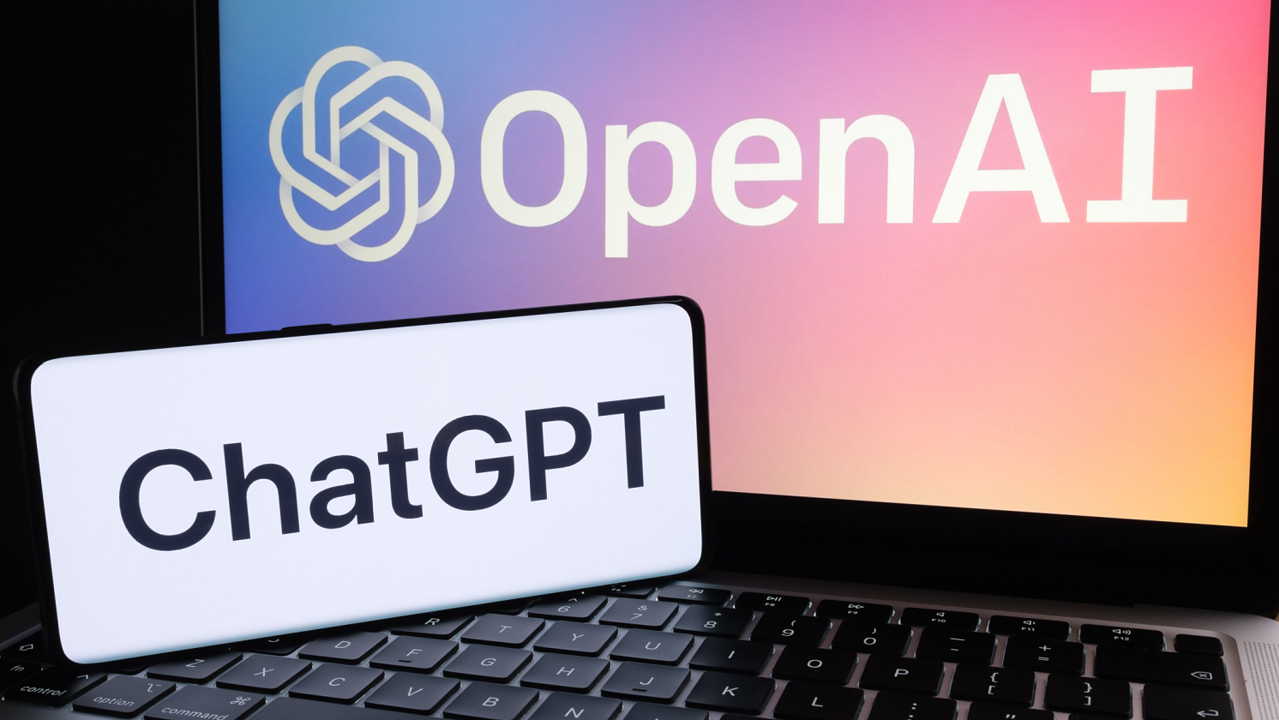ChatGPT And OpenAI: Facing FTC Investigation

Table of Contents
The FTC's Concerns Regarding ChatGPT's Data Practices
The FTC's investigation into ChatGPT and OpenAI centers heavily on concerns surrounding data handling and potential violations of user privacy. The sheer volume of data processed by ChatGPT necessitates a robust and transparent data privacy framework, a point seemingly overlooked in the initial rollout.
Data Privacy Violations
ChatGPT's data practices have raised significant red flags regarding user privacy. The potential for violations stems from several key areas:
- Unauthorized Data Sharing: Concerns exist regarding whether user data is being shared beyond the intended scope, potentially with third-party companies or researchers without explicit consent. This could breach user trust and violate data protection laws like GDPR and CCPA.
- Insufficient Data Security: The security measures employed to protect user data from unauthorized access and breaches need to be rigorously examined. Any vulnerabilities could lead to significant data leaks and identity theft.
- Lack of Transparency in Data Usage: The exact methods employed by OpenAI to collect, store, and utilize user data may lack the transparency required under data protection regulations. Users need to be fully informed about how their data is being used and have control over it.
These practices could potentially violate existing data protection regulations, leading to significant fines and reputational damage for OpenAI. The FTC's investigation aims to determine whether OpenAI has adequately addressed these concerns.
Misinformation and Bias in ChatGPT Outputs
Another key concern for the FTC is the potential for ChatGPT to generate misinformation and biased content. The model's training data contains biases present in the vast datasets used, and these biases inevitably seep into the outputs.
- Biased or Misleading Outputs: ChatGPT has been shown to produce outputs that reflect societal prejudices, perpetuating stereotypes related to gender, race, religion, and other sensitive attributes.
- Societal Impact: The dissemination of biased information through a widely accessible platform like ChatGPT poses serious risks, impacting public opinion and potentially exacerbating societal inequalities.
Mitigating bias in AI models remains a significant challenge. The FTC's investigation will scrutinize OpenAI's efforts to address this issue and determine if sufficient measures have been taken to ensure responsible AI development.
OpenAI's Response to the FTC Investigation
OpenAI's response to the FTC investigation will be pivotal in shaping the future of the company and the broader AI industry. Their actions will determine how seriously the concerns raised are taken and the steps being put into place to rectify any shortcomings.
OpenAI's Public Statements
OpenAI has issued public statements acknowledging the FTC's investigation. These statements often emphasize a commitment to transparency, user privacy, and responsible AI development.
- Key Points from OpenAI's Response: These typically include commitments to strengthen data security measures, improve bias detection systems, and enhance transparency surrounding data usage policies.
- Analysis of OpenAI's Response: While their public statements express a willingness to cooperate, the actual effectiveness of their actions will be judged by their subsequent actions. The FTC's investigation will look for concrete evidence of these commitments.
OpenAI's Internal Actions
Beyond public statements, OpenAI has also undertaken internal actions to address the FTC's concerns. These efforts include:
- Improved Data Security Measures: This might encompass enhanced encryption protocols, improved access controls, and vulnerability assessments.
- New Guidelines for Data Usage: More stringent guidelines could define acceptable use cases for user data, enhancing transparency and control for users.
- Enhanced Bias Detection Systems: OpenAI may be implementing advanced algorithms and human review processes to identify and mitigate bias in the model's outputs.
The effectiveness of these measures is crucial. The FTC will assess whether these changes are sufficient to prevent future violations and protect user privacy.
Implications for the Future of AI Development and Regulation
The FTC's investigation into ChatGPT and OpenAI has significant implications for the broader AI landscape. It highlights the urgent need for a balanced approach to AI regulation, one that encourages innovation while safeguarding user rights and protecting society from potential harms.
Impact on AI Innovation
The investigation could have a chilling effect on AI innovation, particularly for startups.
- Potential Consequences for Startups: Increased scrutiny and stricter regulations may create barriers to entry for new companies, hindering competition and slowing down the pace of AI development.
- Need for a Balanced Approach: Regulations should not stifle innovation but rather focus on fostering responsible AI development.
A balanced regulatory framework is needed that addresses privacy concerns, algorithmic bias, and other ethical challenges without unduly burdening responsible developers.
The Need for Stronger AI Regulations
This investigation underscores the urgent need for stronger AI regulations.
- Proposed Regulations: Several proposals for regulating AI are emerging, addressing topics such as data privacy, algorithmic transparency, and accountability for AI-related harms.
- Benefits and Drawbacks: These regulations may offer better consumer protection and address societal concerns, but they must also be carefully designed to avoid stifling innovation.
Regulating AI is complex. Balancing the desire for innovation with the need for safety and ethical considerations requires careful deliberation and collaboration between policymakers, researchers, and industry leaders.
Conclusion: Navigating the Future of ChatGPT and OpenAI
The FTC's investigation into ChatGPT and OpenAI serves as a critical juncture in the development of AI. The findings of this investigation will significantly impact not only OpenAI's future but also the future trajectory of the entire AI industry. The scrutiny surrounding ChatGPT and OpenAI highlights the crucial need for responsible AI development and robust regulatory frameworks. The future of ChatGPT and OpenAI, and indeed the entire AI landscape, hinges on the outcome of this investigation. Stay informed on the latest developments and participate in the conversation surrounding responsible AI development. The FTC's investigation serves as a crucial reminder of the responsibility that comes with creating powerful AI technologies like ChatGPT; a responsibility that demands continuous vigilance and a commitment to ethical practices.

Featured Posts
-
 Miley Cyrus Nieuw Album Eerste Single Komt Uit Donderdagnacht
May 06, 2025
Miley Cyrus Nieuw Album Eerste Single Komt Uit Donderdagnacht
May 06, 2025 -
 Thlyl Dwr Sbayk Fy Nmw Snaet Alaflam Alsewdyt
May 06, 2025
Thlyl Dwr Sbayk Fy Nmw Snaet Alaflam Alsewdyt
May 06, 2025 -
 Peplum Perfection Mindy Kalings Walk Of Fame Style
May 06, 2025
Peplum Perfection Mindy Kalings Walk Of Fame Style
May 06, 2025 -
 What To Expect From The Bear Season 4
May 06, 2025
What To Expect From The Bear Season 4
May 06, 2025 -
 Celtics Vs Heat Basketball Game February 10th Viewing Guide
May 06, 2025
Celtics Vs Heat Basketball Game February 10th Viewing Guide
May 06, 2025
